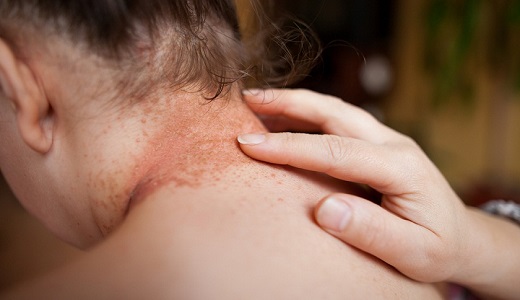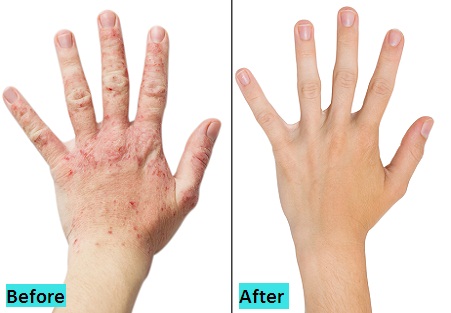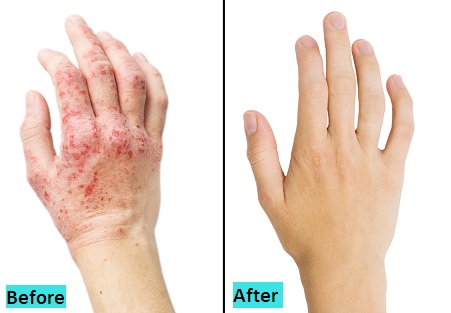Psoriasis is a medical condition that occurs due to faulty signal of the immune system. These signals cause the skin cells to grow quickly forming an extra scaly layer of skin. These layers are of different kinds. They appear as pustules and red scales. Psoriasis can begin even during infancy however 75% develop this disease after turning 40 years of age.
Eczema, as a general term, is a chronic skin condition (dermatitis), usually an inflammation of red, itchy and/or swollen skin, that spans across several different forms. The short answer: there is no difference. The two words are often used interchangeably, what is more important is the type of eczema one may have. There was once a time when eczema was used to refer to skin conditions caused internally, while dermatitis was used for skin conditions caused externally. However, this is no longer the case.
Patient with Vitiligo develops white spots on the skin. These spots may vary in size and are not localised to any one body part. The reason behind these white spots is the loss of skin pigment cell’s capacity to produce melanin, a pigment that determines the colour of the skin. Melanin is produced by the pigment cells called melanocytes. In the case of this disease the melanocytes stops producing melanin resulting in the whitening of the skin.








